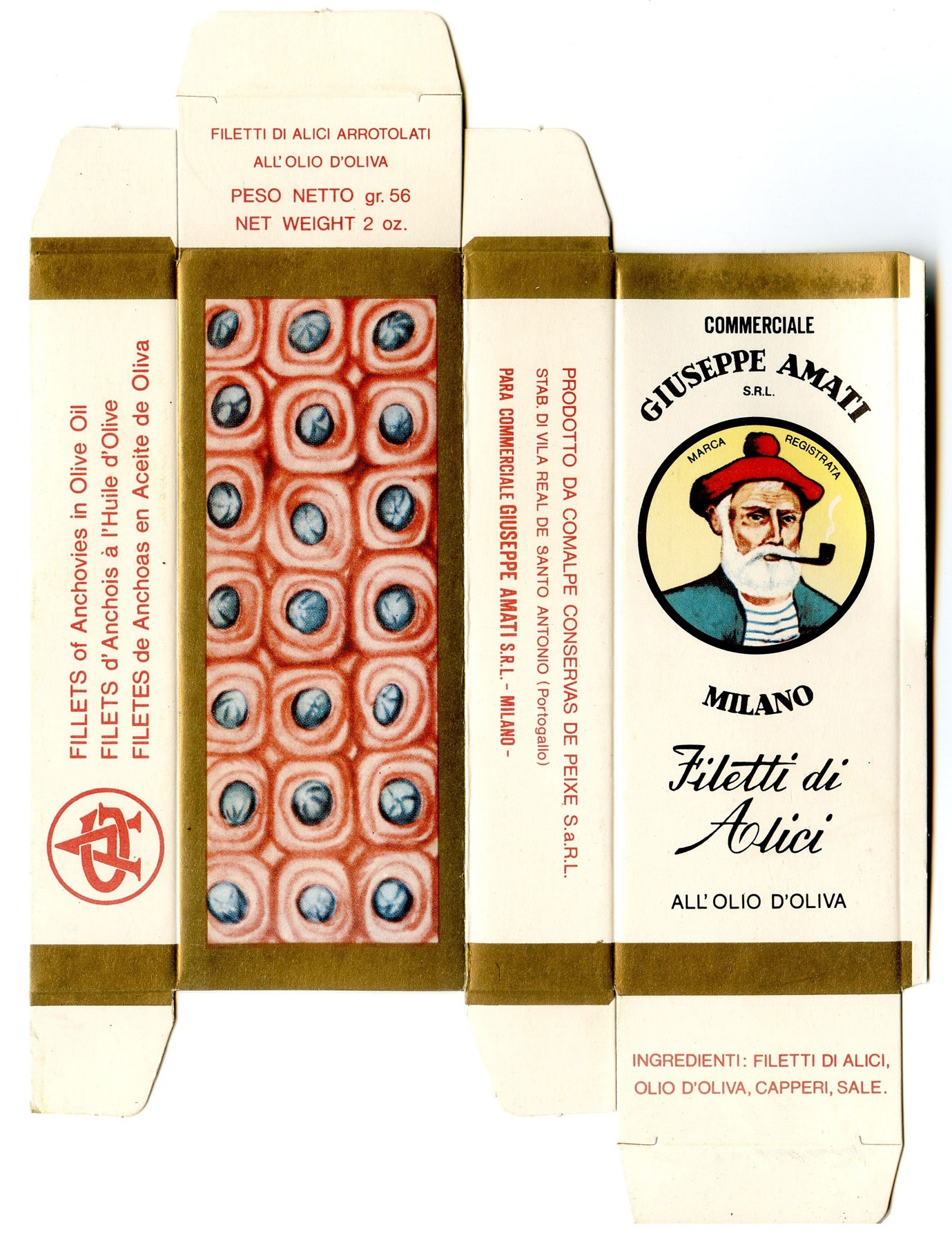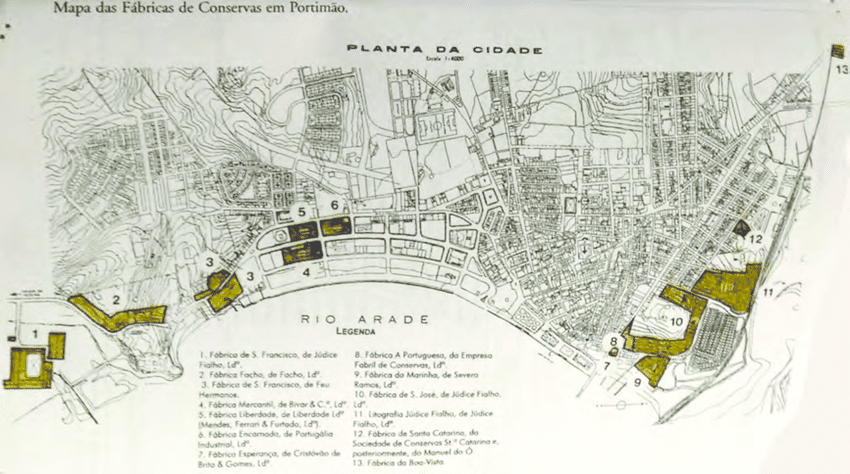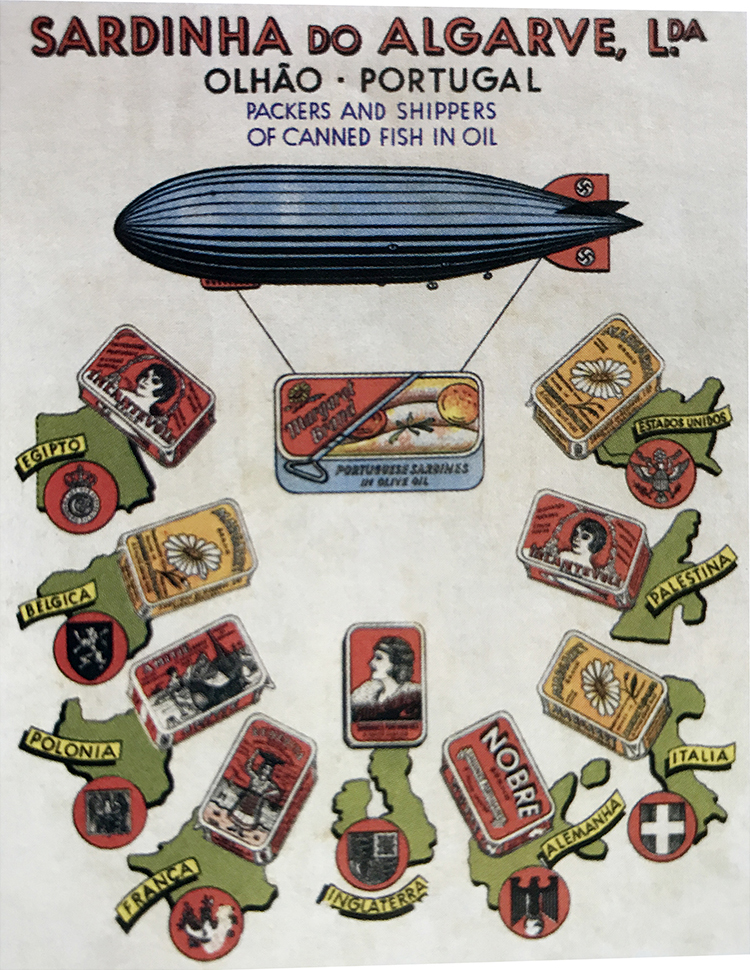The Fish Canning Industry in Algarve
From Sun to Sun - A story of women, fish and visionary entrepreneurs

Posted on Mon 27 Dec 2021
The Fish Canning Industry in Algarve and Portimão
This article is just a small "appetizer" of the marvellous world that you will discover and taste during our unique and inimitable tour of the Past and Present of the fish canning industry in Portimão, the result of many years of study, reading and meetings with heirs of great entrepreneurs of the past. .
Le'ts dive back to the end of the 19th century and the beginning of the 20th century and talk about canned fish in Algarve and Portimão, where the sirens of the factories could be heard in the morning, afternoon or evening, depending on the arrival of the fish that needed to be processed and could not wait.
Although food preservation is a very old activity, the modern fish canning industry was brought about by the technological and scientific development resulting from the expansion of the capitalist system at the end of the 19th century.
1853 is the date attributed to the oldest canning factory, still in salted brine, Ramirez & Cª, Ltd., founded in Vila Real de Santo António by the Andalusian Sebastian Ramirez, a farmer by profession, who brought to that town a Catalan master canner. The economic expansion of the company continued with the establishment of units in Olhão, Albufeira and Setúbal, making RAMIREZ the oldest producer and exporter of canned food in Portugal in Europe and one of the oldest in the world.
The fish canning industry's main products were sardines, mackerel, tuna, anchovies, squid and cuttlefish.
In the Algarve canning centres, the pioneering spirit of foreign industrialists should be emphasised, namely the French (Lagos), but also the Greeks, Italians, Spanish (Olhao and Vila Real de Santo Antonio) and, obviously, the Portuguese.

The industry of canned marinated tuna was created in Vila Real de Santo António, in 1879, by Parodi & Roldan (still active with great proud of its history AngeloParodi), who founded the factory "Santa Maria". Since the following year it used a steam engine, with a 4 horse power. It also employed 16 boilers to sew the tuna, and the labour force was composed of 80 to 100 workers, 50 to 70 female workers and 8 underage girls. The working day lasted fourteen hours, ten during the day and four at night. Wages showed enormous disparities: while men could earn 600 réis, women earned 220 réis and minors only 180 réis. Under the Parodi family tuna processing underwent epochal innovations: from being stored in salt in wooden barrels to being preserved in oil. They also introduced tin canning. These changes represented a real revolution: they improved the quality of the product, made it safer and facilitated its transport throughout Europe. (For the record, these inventions in Italy were brought by the Florio family, a name that evokes the splendour of Sicily during the Belle époque and the legendary family that revolutionised the island's economy and culture. Traders, shipowners and patrons of the arts, the Florios were also involved in tuna fishing and processing, and transformed the tuna fishery in Favignana into a modern and innovative canning industry.)
Portimão
1891, marks the birth of the canning industry in Portimão with the establishment of two factories: the "Liberdade" cannery and the "S. José" factory, the latter belonging to the great trader, shipowner and industrialist Júdice Fialho. However, this would not remain just for this unit, as in 1903 he started up the "S. Francisco" factory and in 1904 he bought the canning factory located in Ferragudo.
In his factories there was "everything that modern industries have invented in machineries and installations to reduce manual work". From his factories in Portimão and Ferragudo we could see daily, when there was "enough raw material for the work", "the departure of workers in large groups making a long tail along the roads"
This great and modern industrialist for his time, owned, in addition to these factories and those located in Lagos and Olhão, also tuna canneries in Esturmal, near Praia da Rocha, and in Funchal. Peniche (1915) and Sines (1926), as important fishing centres, also saw the tall chimneys of the canneries owned by Júdice Fialho. To supply its production units it had a fleet of steamers and petrol, as well as an important fishing fleet, having set up a shipyard near the "S. Francisco" factory, where it built its own shipyard.
Almost all its production was exported to the English, German, French and North American markets. This production consisted of 200 canned tuna boxes of 80 kg each, worth 32 thousand escudos and 50,000 canned sardine boxes worth 200 thousand escudos.
From Sun to Sun", or "de Sol a Sol"....this has been the working day of thousand of women, man and child for about 70 years...with only two hours rest per day, divided into two breaks.
This is a Map of the 13 Factories working in Portimão around 1925.

When we think of the Canning Industry we are not only talking about fish processing. Its relevance was immense for the people of Portimão and the Algarve.
Fishing, ship-building, Shipyards, fishing gear nets, Salt Production, Lithography (with the beautiful and still admired commercials attached to the cans), and Real Estate Construction.
Almost all factories built housing for their workers and often "working class neighborhoods" like Bairro do Pontal (1943) Bairro Operário, Rua dos Operários, Conserveiros, Bairro da Boa Vista among others or built large warehouses,
Beside these jobs, agriculture was also part of game producing the main ingredients for conservation (extra virgin olive oil) and seasoning of the final products to make it special and different one to the others, such as green pepper, tomato, carrot, onion, sage, clove and bay leaf.
Today
Thanks to the fantastic work of a group of three entrepreneurs, this fascinating story of Portimao has a future again and glorious prospects of returning to tables all over Europe, with a high-quality gourmet product created by Saboreal.
During our tour of the Past and Present of the fish canning industry in Portimão , we will visit the factory and meet in person one of the minds behind this fantastic work of recovery and innovation of such an ancient tradition with a unique flavour.

